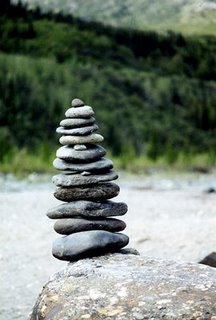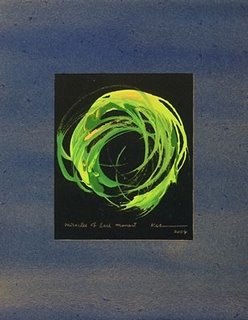"Compassion is not a relationship between the healer and the wounded. It's a relationship between equals. Only when we know our own darkness well can we be present with the darkness of others. Compassion becomes real when we recognize our shared humanity."
--Pema Chodron
Friend: This darkness within us, it is a character like Tolkien's Gollum, and it appears to be universal in all human beings. We each have a different version, but it is a darkness that is part of our shared humanity. It does provide a common ground that allows for us to feel tenderness, connection, kindness and compassion.
Meredith: These dark images make me feel sooo sad, it is nearly unbearable to keep thinking about it for very long. And yet it feels so real and authentic, like "Yes, Gollum is finally out in the open, this terrible ugly secret I have been harboring. Now you know the truth of me."
Friend: Yes this is the stuff of which Gollum is made. Acknowledging our own darkness is excruciating, and yet...and yet... we must bear this woundedness, hold our sorrow, fear and confusion within an open heart. Holding these feelings, bearing them, allowing them to be and then to go of their own accord, however raw, exposed and vulnerable gives birth to warmth and compassion. I have indulged, much more often I have repressed, and both of these ways lead to further suffering. But to allow, to accept, to hold and bear with an open heart is sooooo hard, yet it is the way I have discovered to any real peace. And yes, this is a brand new discovery. My Gollum carries the key that brings light into the darkness, the light and warmth of consciousness which dispels shadow. As excruciatingly difficult as it is, as hard as it is to hold, allowing my Gollum to be - because it is, I genuinely feel wretched and unlovable in my darkest corners, I feel sorrow and fear and confusion - is paradoxically the key to healing my suffering.
I asked the universe for the power to heal suffering, and the universe showed me compassion. Compassion was the universe's response to my request for the power to heal the suffering of myself and others.
Pema Chodron also says this over and over, compassion is a key to healing suffering of self and other. And Sylvia Boorstein says it, too; "I think it's the awareness of the vulnerability to sorrow that human beings share that keeps me kind." Warmth and love and kindness come out of being present with our own darkness, our own vulnerability, suffering, sorrow, fear and confusion. It is this awareness of our shared vulnerability to pain that generates our love and warmth for ourselves and others. It is what heals and soothes suffering.
Meredith: Right. I, too, am finding that only when I am conscious of my own woundedness and suffering, conscious of my own darkness, can I be present with the woundedness and darkness of others. This "being present with" is compassion, and it is compassion that soothes and heals suffering.


